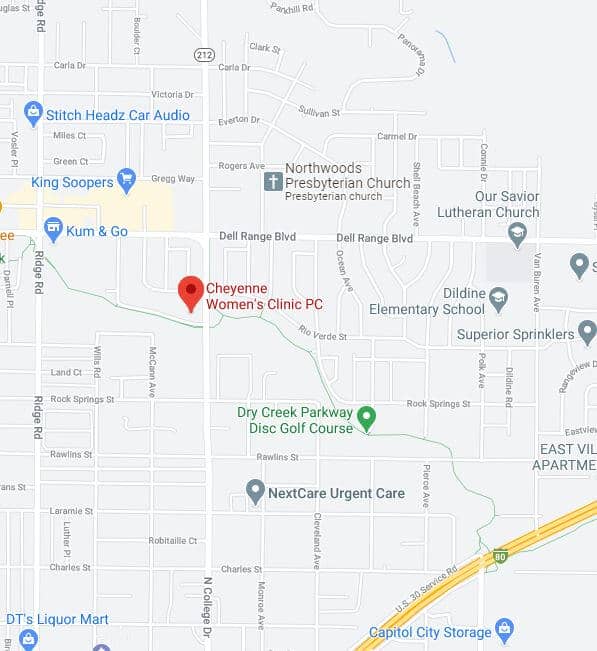Sexually transmitted infections (STIs) are just what they sound like: infections that you can get by having sex and are spread through sexual contact. They are very common and may be very contagious, sort of like a cold or the flu. The difference is STIs can damage your body and even kill you.
STIs are caused by bacterial or viral infections and you may or may not have any symptoms. You can get an STI through vaginal, oral, or anal sex with an infected person by making contact with his or her genitals, mouth, rectum, or body fluids. You can also get certain STIs through sharing drug needles with someone who is infected. If you are infected, you can pass the infection on to others the same way. If you contract a bacterial infection, you can treat it with antibiotics. A viral infection can’t be cured, but you can treat your symptoms with medication.
The Most Common Sexually Transmitted Infections
The most common STIs include:
- Chlamydia – The most commonly reported STI in the U.S., chlamydia is a bacterial infection that usually has no symptoms. Untreated chlamydia can cause pelvic inflammatory disease (PID) that can affect your ability to get pregnant. It is treated with antibiotics.
- Gonorrhea – The second most commonly reported STI in the U.S., gonorrhea often occurs with chlamydia. It can cause the same long-term health complications as chlamydia and is also treated with antibiotics.
- Genital herpes – Herpes is caused by an infection with the herpes simplex virus and causes painful sores and blisters around the lips, genitals or anus. Medications can lessen the severity of the symptoms.
- Human immunodeficiency virus (HIV) infection – HIV gets into your blood stream via the body fluids (such as blood or semen) of an infected person. It attacks the key cells in your immune system leaving you less able to fight disease. There is no cure for HIV, but medications can help you stay healthier and decrease the chance of you passing the disease on to others.
- Human Papillomavirus (HPV) infection – HPV is very common. Almost everyone who is sexually active will get an infection at some point, but because there are often no signs or symptoms, the infected person usually doesn’t know he or she has it. Certain forms of HPV can cause genital warts or cancer in some people, but in most people, their immune system fights off the virus and clears it from their body. A vaccination can protect you from many types of HPV.
- Syphilis – Syphilis is a bacterial infection that has three stages, each with a different set of symptoms. The most serious is the last stage, which can cause heart problems and brain damage. Pregnant women are routinely tested at least once for this infection during their pregnancy.
- Trichomoniasis – A microscopic parasite causes this infection that is spread through sex. If you contract it, you are at increased risk of other STIs. Treatment for trichomoniasis is through antibiotics.
- Hepatitis B – Hepatitis B is a liver infection spread by direct contact with the body fluids of an infected person through sex or sharing needles during drug use. Sometimes your body will clear the infection without treatment, but in some people the infection will persist. There is no cure, but medication can manage your symptoms and protect you from some of the liver damage the virus can cause. There is also a vaccine that can protect you from the virus.
- Hepatitis C – Hepatitis C is another liver infection spread by contact with the blood of an infected person, such as through sharing needles, or occasionally by having sex with an infected person. There is no vaccine, but medication that can cure the disease in many cases is now available.
How to Avoid Getting an STI
Risk factors for contracting STIs include:
- Having more than one sex partner
- Being with a partner who has or has had more than one sex partner
- Having sex with someone who has an STI
- A history of having STIs
- Using intravenous drugs or having a sex partner who uses intravenous drugs
To reduce your chances of contracting an STI:
- Know your sexual partners and their sexual history.
- Limit your number of sexual partners. The more you have, the higher your risk.
- Use a latex condom every time you have sex.
- Avoid risky sex practices such as those that break the skin. Small cuts or tears in your skin put you at risk of infection.
- Avoid any kind of unprotected sexual contact with a person infected with an STI.
- Get immunized – vaccinations can protect you from Hepatitis B and some forms of HPV.
Sexually Transmitted Infections and Pregnancy
Having or contracting an STI while you are pregnant can harm your baby. Gonorrhea and chlamydia can cause problems ranging from eye infections to pneumonia. Syphilis can cause miscarriage or stillbirth. You can pass HIV on to your baby during a vaginal birth. If you are pregnant or trying to become pregnant and you have or have had an STI, or your partner has or has had an STI, it’s important to let your doctor know. Tests for some STIs are routine during pregnancy but for the safety of your baby, your doctor needs to have the best information about your health history.
If you think you might have an STI, make an appointment with a provider by calling 307.637.7700. He or she can make a diagnosis, then prescribe medication to treat your infection or your symptoms.







